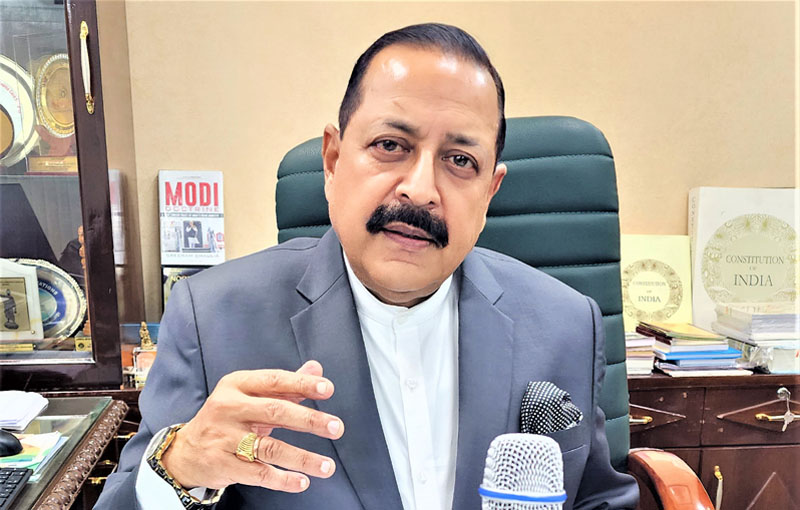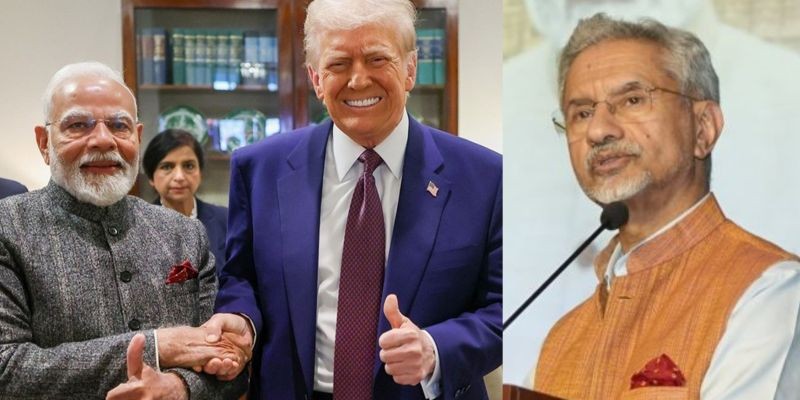Jitendra Singh will lead the official Indian delegation to United Arab Emirates at “Abu Dhabi Space Debate” tomorrow

New Delhi: Union Minister of State (Independent Charge) Science & Technology; Minister of State (Independent Charge) Earth Sciences; MoS PMO, Personnel, Public Grievances, Pensions, Atomic Energy and Space, Jitendra Singh will lead the official Indian delegation to United Arab Emirates (UAE) at the “Abu Dhabi Space Debate”, a 2-day international meet beginning on Monday.
Jitendra Singh will address the Opening Ceremony on India's behalf along with the Israeli President Isaac Herzog.
Jitendra Singh will also attend the Ministerial Plenary on the ‘Role of Foreign Policy in Enabling Space Diplomacy and International Cooperation’ along with the MoS Foreign Affairs of the UAE, Foreign Minister of Bahrain and Minister of Advanced Technologies of Israel.
The Minister is also scheduled to hold delegation level talks with Sarah Al Amiri, UAE Minister of State for Advanced Technology and Chairperson of UAE Space Agency to discuss ways and means for further strengthening bilateral space cooperation.
In a statement issued before departure to Abu Dhabi, Dr Jitendra Singh said, India and UAE joint space cooperation is on the verge of taking a big leap in the Arabian Peninsula, as the two sides have prioritised increased bilateral space cooperation.
He said, Indian Space Research Organisation (ISRO) and UAE Space Agency (UAESA) signed an MoU regarding cooperation in the exploration and use of outer space for peaceful purposes in 2016.
The Minister also informed that UAE’s first nanosatellite - ‘Nayif-1’ meant for collecting environmental space data was launched by PSLV from Siriharikota.
The UAE is an emerging space power in the region and has made rapid strides in the last 25 years of its space journey. In July 2020, UAE launched its Mars mission named Hope Probe which entered into Mars orbit in Feb 2021. This made the UAE the first Arab country and the sixth in the world to achieve this feat.
The UAE is planning to launch Rashid Rover or the Emirates Lunar Mission shortly. In Sep 2019, Hanzala Al Mansoori became the first Emirati to go to Space when he went to the International Space Station (ISS) for eight days through a Russian space vehicle from Kazakhstan.
This year, another UAE astronaut was selected to travel to the ISS on NASA’s crew rotation flight, SpaceX Crew-6 for six-months period.
Jitendra Singh said, Space Reforms of Prime Minister Narendra Modi have opened many new vistas and only last month, India made a new beginning in India's Space journey by launching India's first ever private Rocket.
He said, "The reforms have also unleashed the innovative potentials of start-ups and within a short span of time, from a couple of Space Start-ups three -four years back, today we have 105 start-ups working in cutting-edge areas of space debris management., nano-satellite, launch vehicle, ground systems, research etc."
Jitendra Singh recalled that while launching Indian Space Association (ISpA), a premier industry association of space and satellite companies on 11th October, 2021, Modi said, “Our approach to space reforms is based on four pillars- freedom to the private sector in innovation, the role of the government as an enabler, making youth future-ready and seeing the space sector as a resource for the progress of common man”.
Jitendra Singh is also likely to pitch for joint start-up ventures between India and United Arab Emirates in advanced and emerging space technologies during the delegation level talks with Sarah Al Amiri, UAE Minister of State for Advanced Technology and Chairperson of UAE Space Agency. Given the immense potential both countries have in the Space sector, cooperation in this sector would be a new dimension of strengthening bilateral relations.
Jitendra Singh underlined that under the leadership of Prime Minister Modi and UAE President His Highness Sheikh Mohamed bin Zayed, centuries old close bilateral relationship has gained intense momentum as the relationship was elevated to the Comprehensive Strategic Partnership in 2017. Both countries signed the Comprehensive Economic Partnership Agreement earlier this year and they aspire to take the bilateral trade from the existing US$ 72 billion to US$ 100 billion in the next five years.




